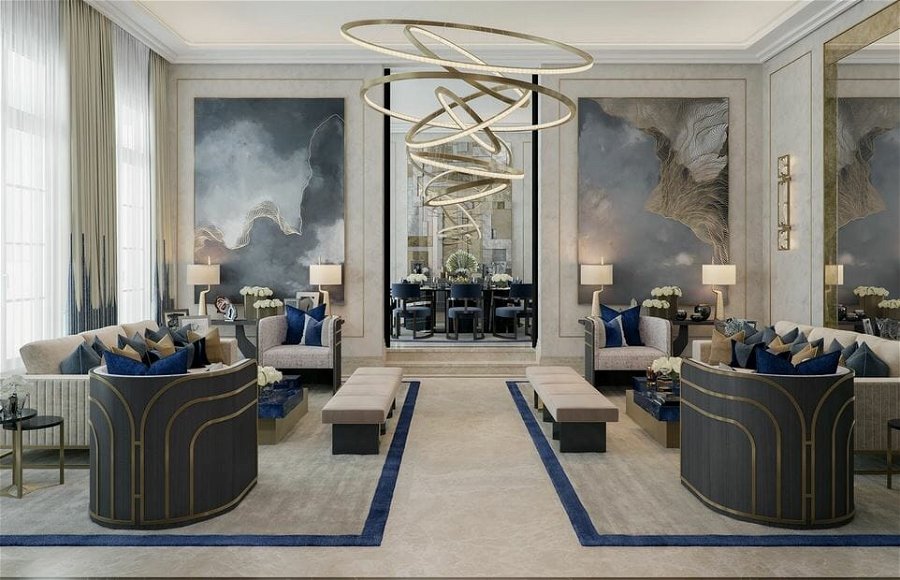
Your home’s lighting interior design matters – it can make or break the look of your home. Illumination plays a fundamental role in making a space feel just right. Yet, there are many factors to consider for the light design of your home’s interior. For instance, features in your home, like a fireplace or artwork, could benefit from strategic focal lights. But employing an efficient home interior lighting plan can be challenging. That’s why we’ve put together useful lighting interior design tips to help make your home shine!
Lighting Interior Design Do’s and Don’ts
Do Layer Light
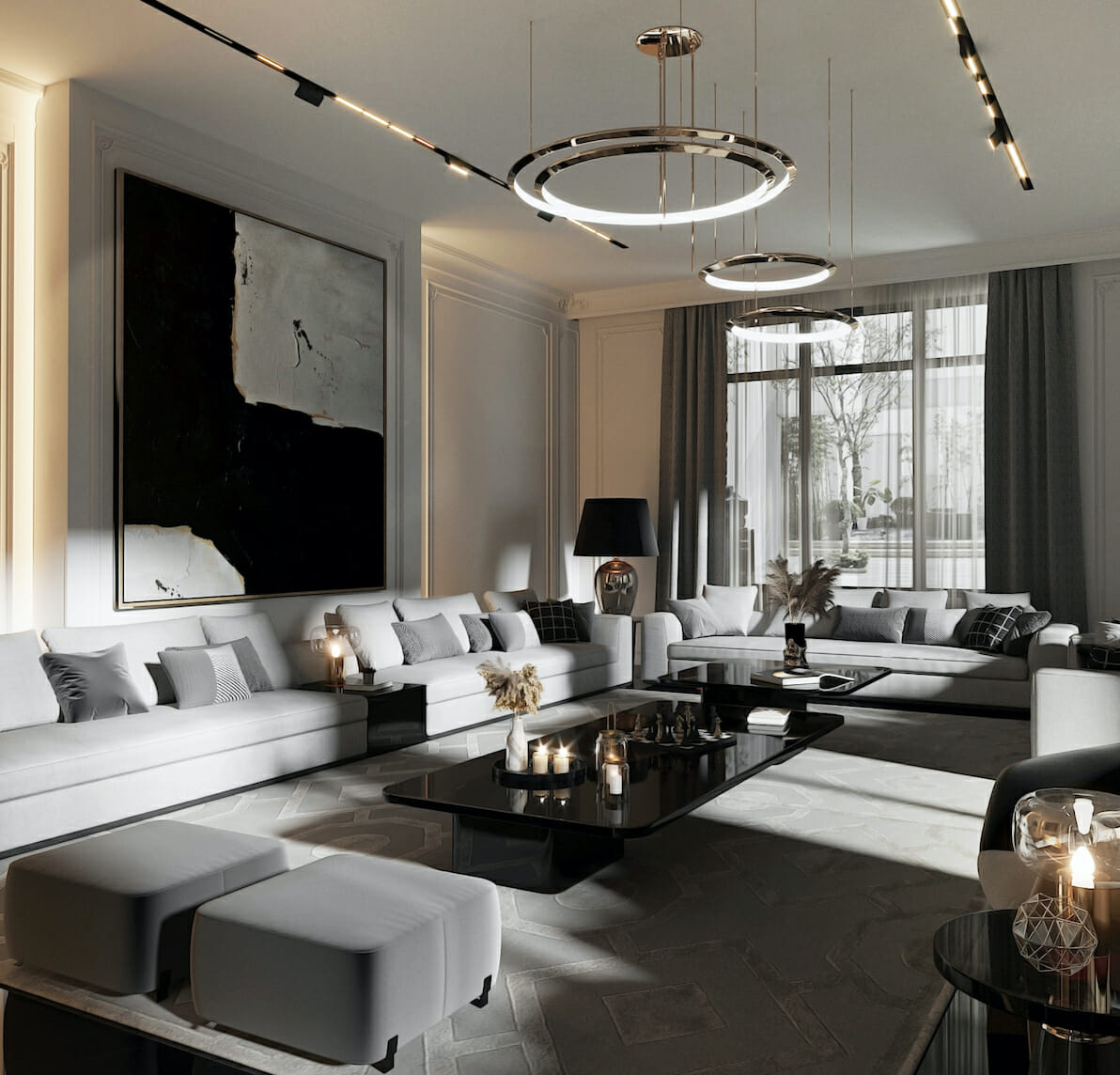
Light layering helps you achieve a warmer and more welcoming look in your interiors. Often, homemakers or DIY-type decorators focus too much on ambient light, which results in dead corners where light doesn’t reach. In addition, these overlooked corners can detract from your room’s aesthetics. So, it is vital to incorporate all types of lighting fixtures in your interior design, from ambient to task and accent lighting.
Do Make a Statement
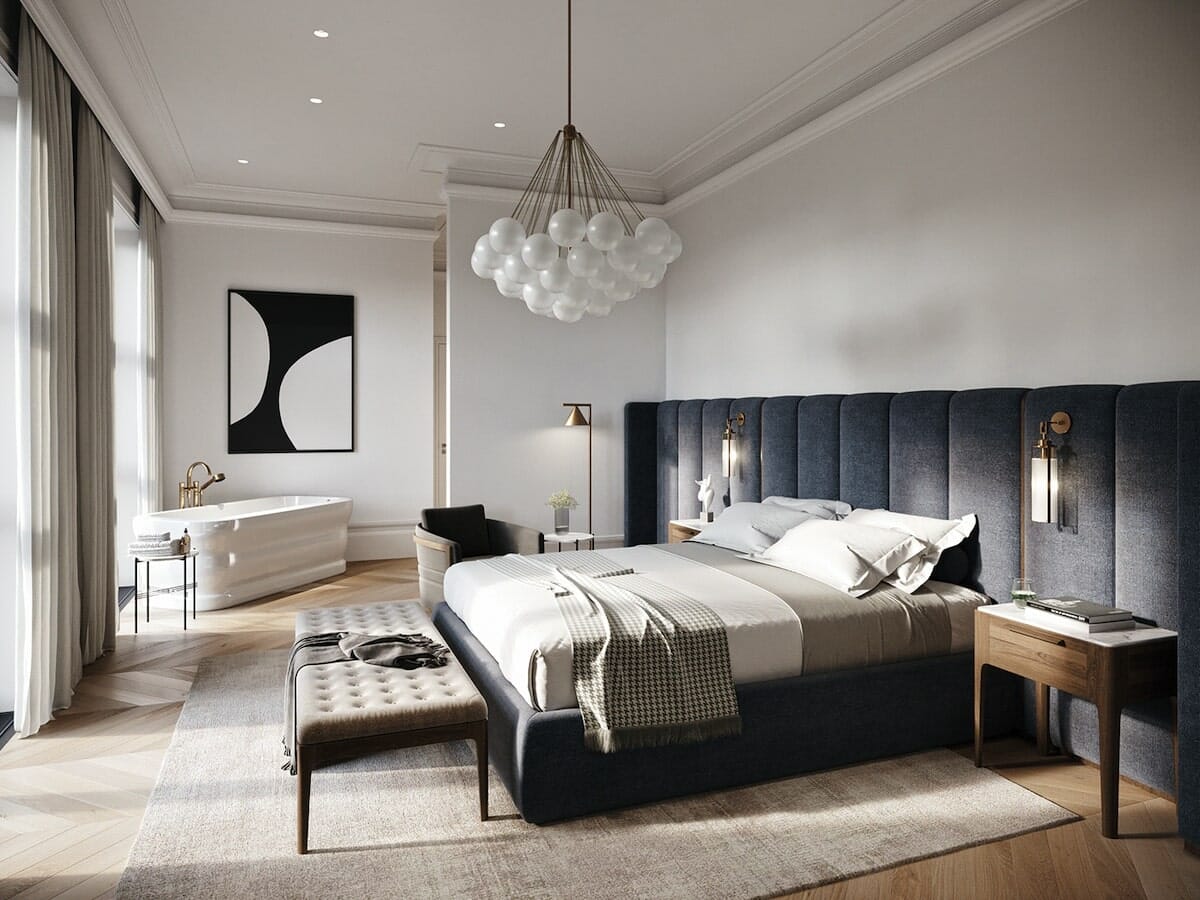
Just like any other interior design element, lighting plays a crucial role in decorating the room. There is a myriad of lighting fixtures that are bold and beautiful. For example, a grand chandelier in the center of the room can make your home feel luxurious. You can use all kinds of modern interior lighting, from floor lamps to ceiling pendants – whatever you like – to add a sense of drama.
Do Play with Light Intensity
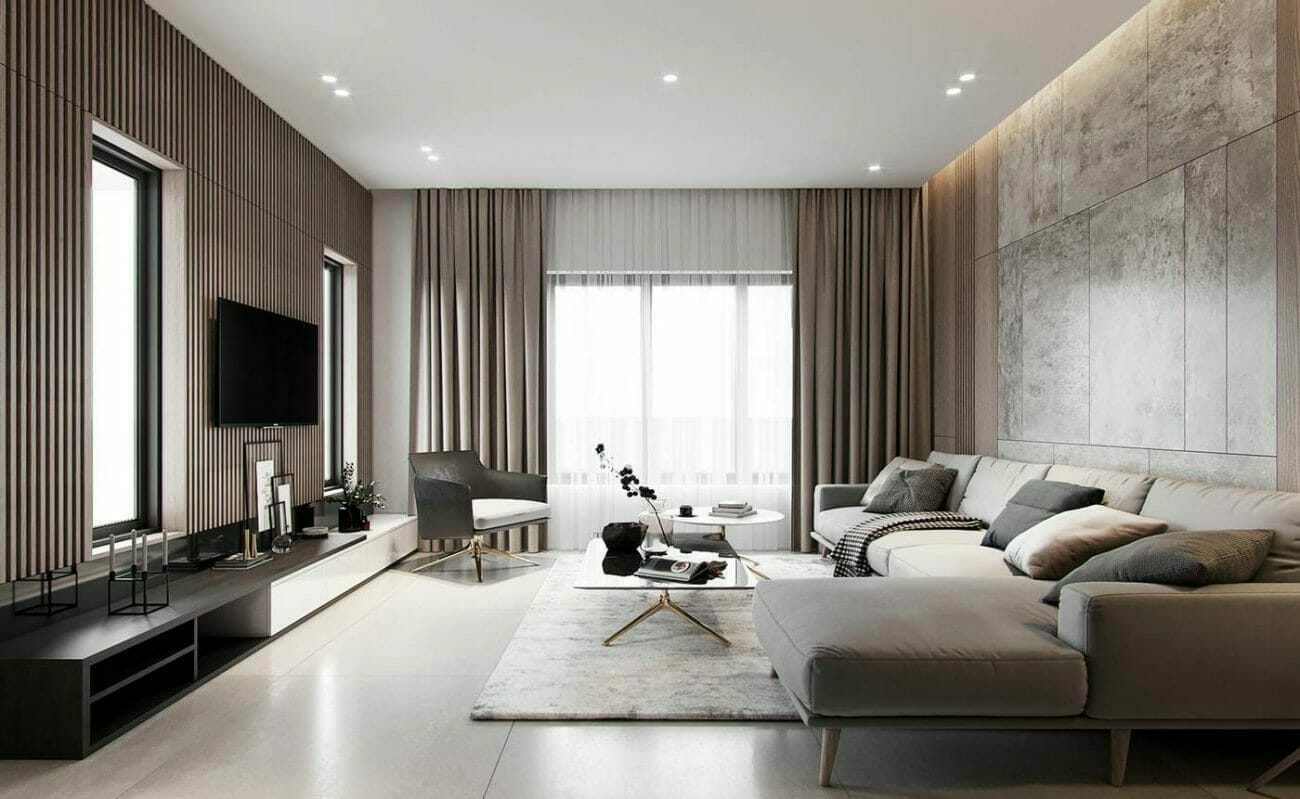
Another great way to improve your home interior lighting is by adjusting the light intensity. Cool white light helps to brighten a room but can make it difficult to fall asleep, which is great for a study but horrible in the bedroom. On the other hand, yellow light is perfect to set up a casual mood. Having a good mix of different light intensities can certainly transform the space instantly.
Want to brighten your home’s lighting interior design, but not sure where to start? Then, schedule a Free Interior Design Consultation for expert assistance getting started today!
Don’t Hang Lighting Fixtures Poorly
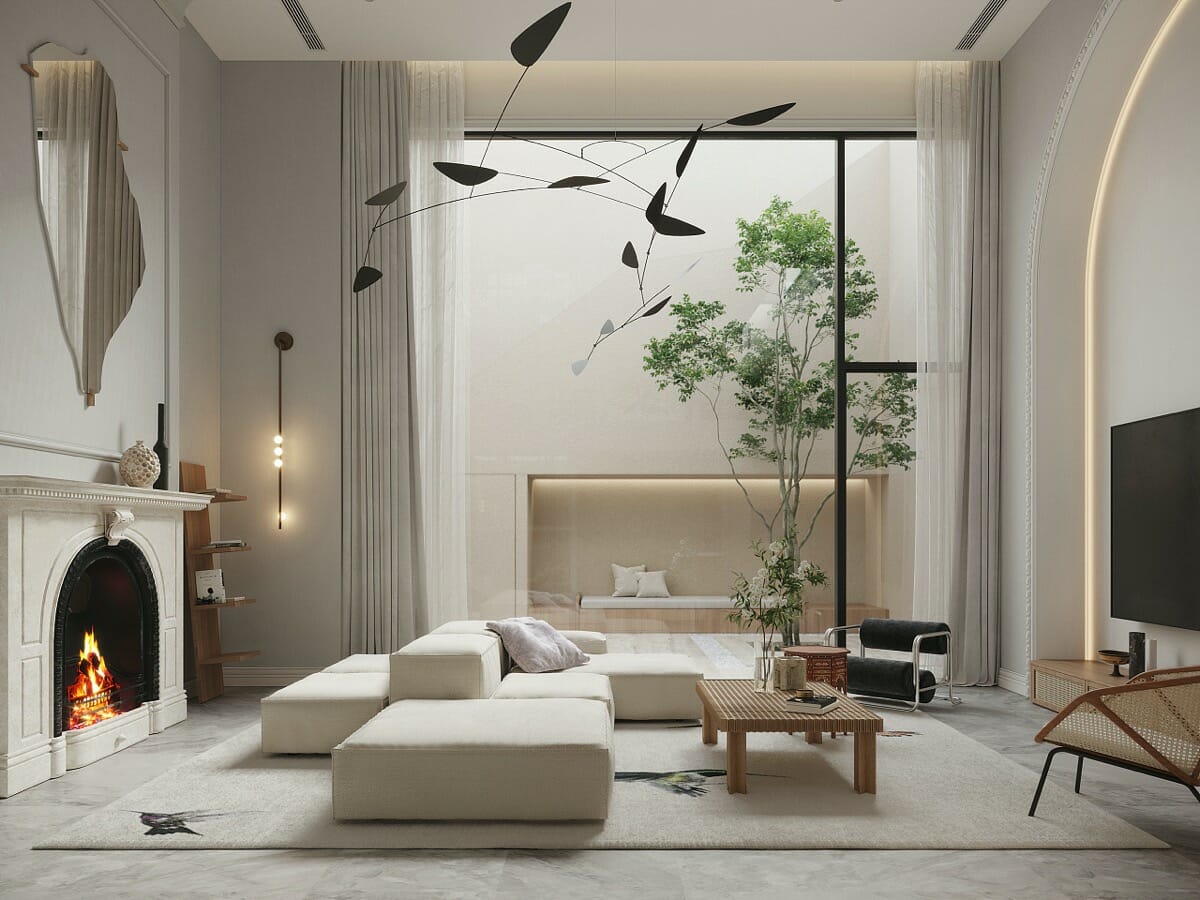
The height of fixtures can make or break a home’s interior lighting design. A too low-hung pendant above a dining table will make it uncomfortable to maneuver around. On the other hand, placing it too high, can make a pendant stand out less than you want it to. That’s why it is important to install lights at just the correct height to create a balanced and impactful look.
Don’t Buy Based on Aesthetics Only
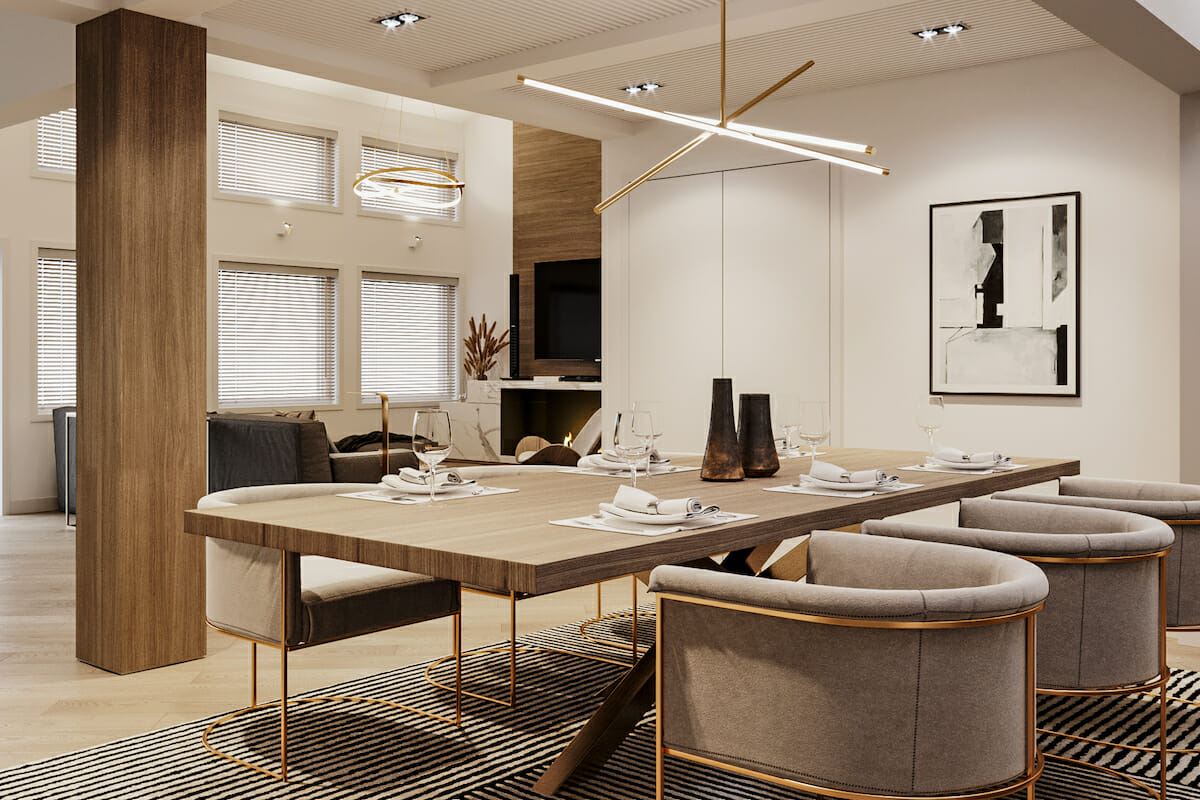
Lighting is not only about aesthetics but also serves a vital functional purpose. Hence, making decisions based on aesthetics alone will do you no good. For this reason, it is essential to plan your house interior lighting design room-by-room, based on the intended use of each space. In addition, you also need to consider the energy consumption, wattage, and light intensity of your preferred options.
Don’t Blindly Follow Trends
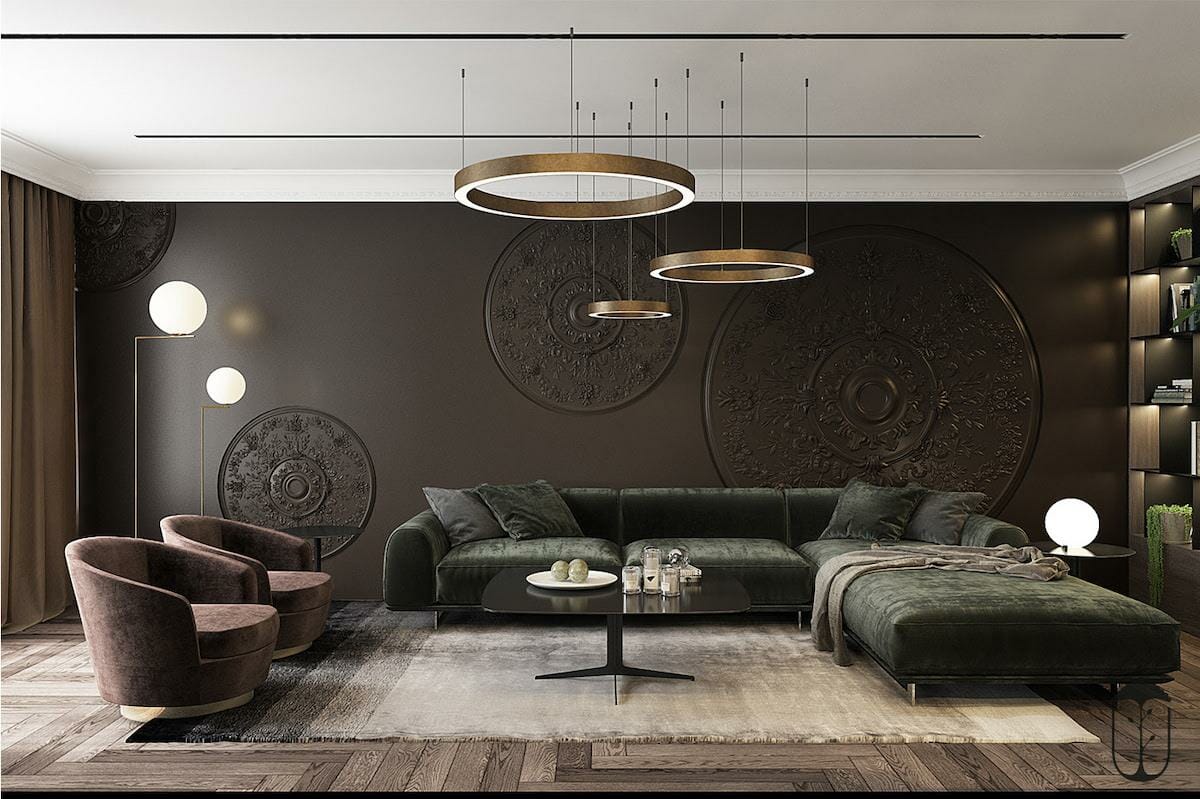
Selecting a lighting fixture that fits your interior style is important. Modern interior lighting offers a ton of options, which makes it easy to get carried away. Pay attention to the materials, finishes, light intensity, and bulb type, and ensure they complement the look of your home.
Types of Lighting in Interior Design
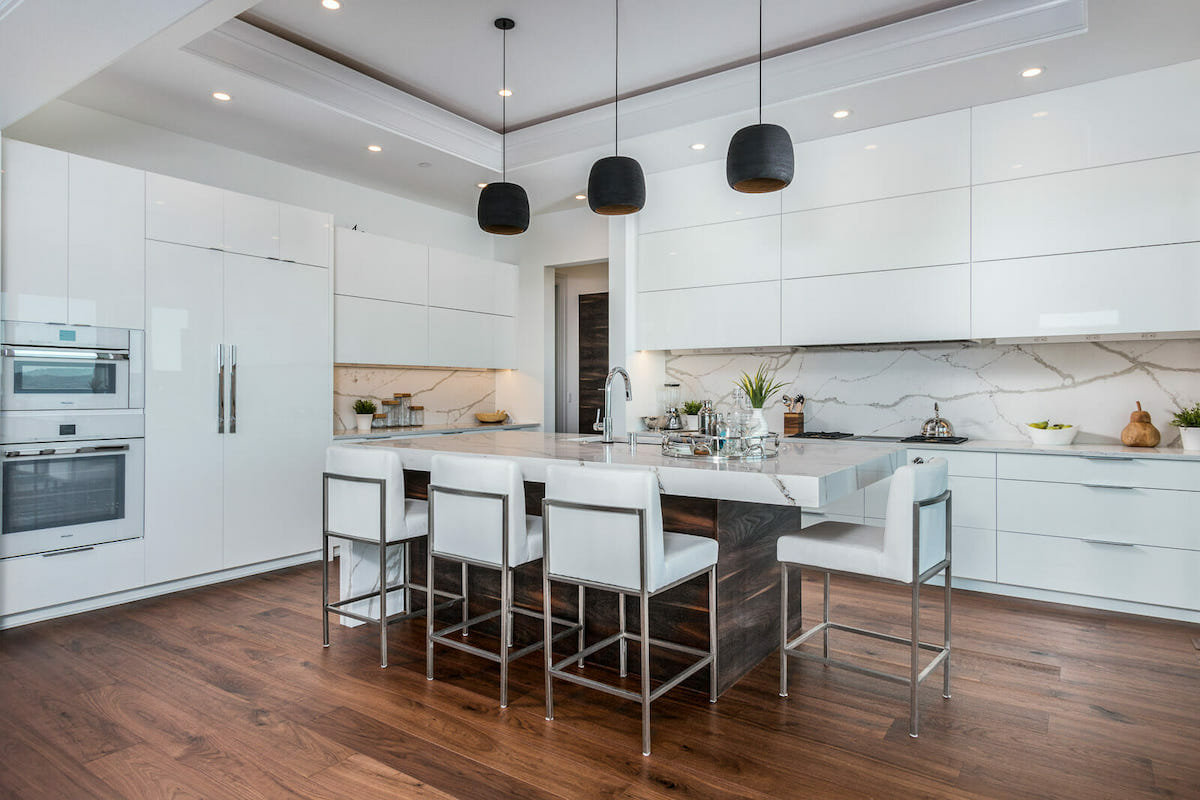
It’s useful to get to know the different types of lighting in interior design and which setting each fits best. These include ambient, task, accent and natural lighting.
Ambient Lighting Interior Design
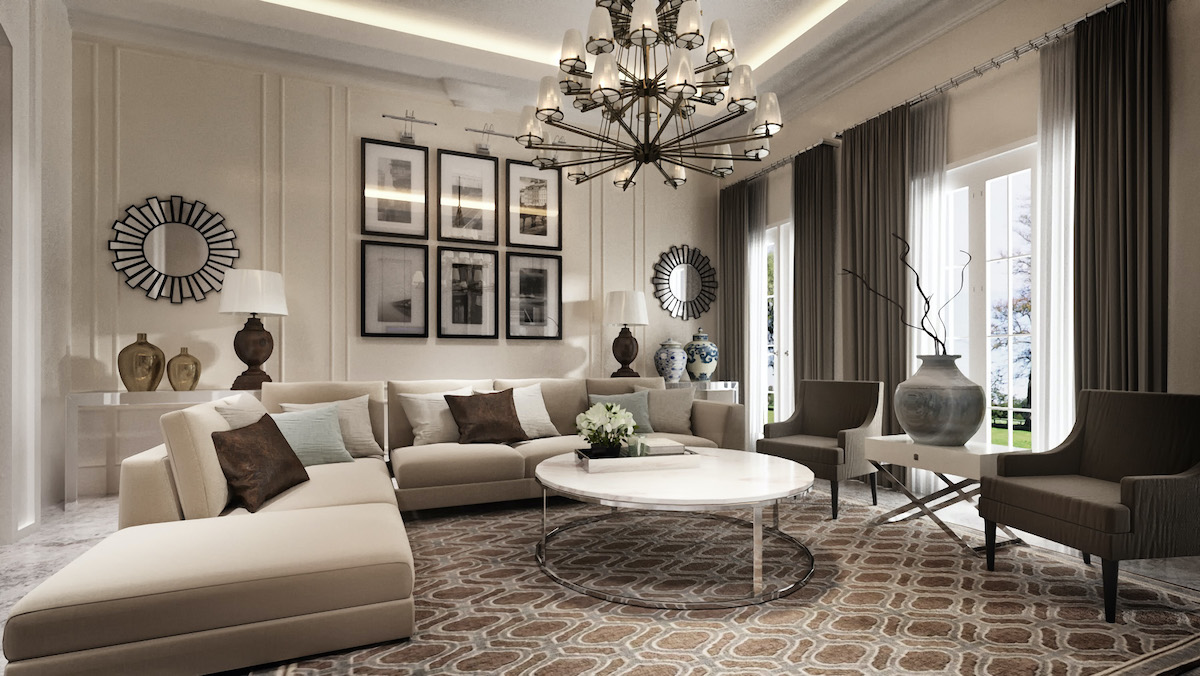
General lighting present in a room is considered ambient lighting. This could include a mix of natural light, LED track lights, and down-lights that provide the most light of the different types of lighting. Interior ceiling lighting design consisting of LEDs is a popular and efficient way of uniformly distributing light in a room. Moreover, ambient light ensures that general tasks can be done without any interference.
Task Lighting Interior Design
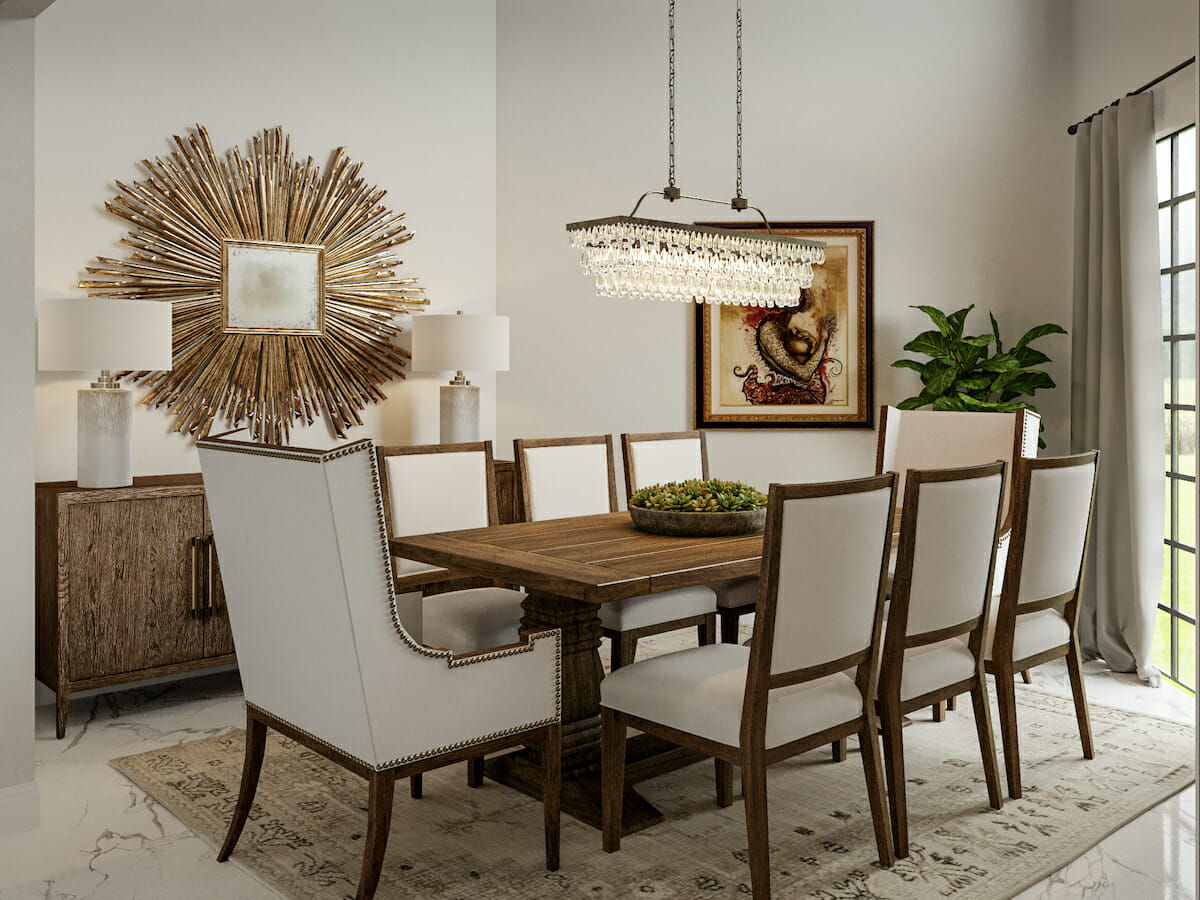
The most important type of lighting in design is task lighting. That’s because these lights illuminate areas where specific tasks need to be carried out. For instance, a table lamp is necessary for a reading nook. Similarly, under cabinet lighting in a kitchen helps make the work area on the countertop clearly visible.
Accent Lighting in Interior Design
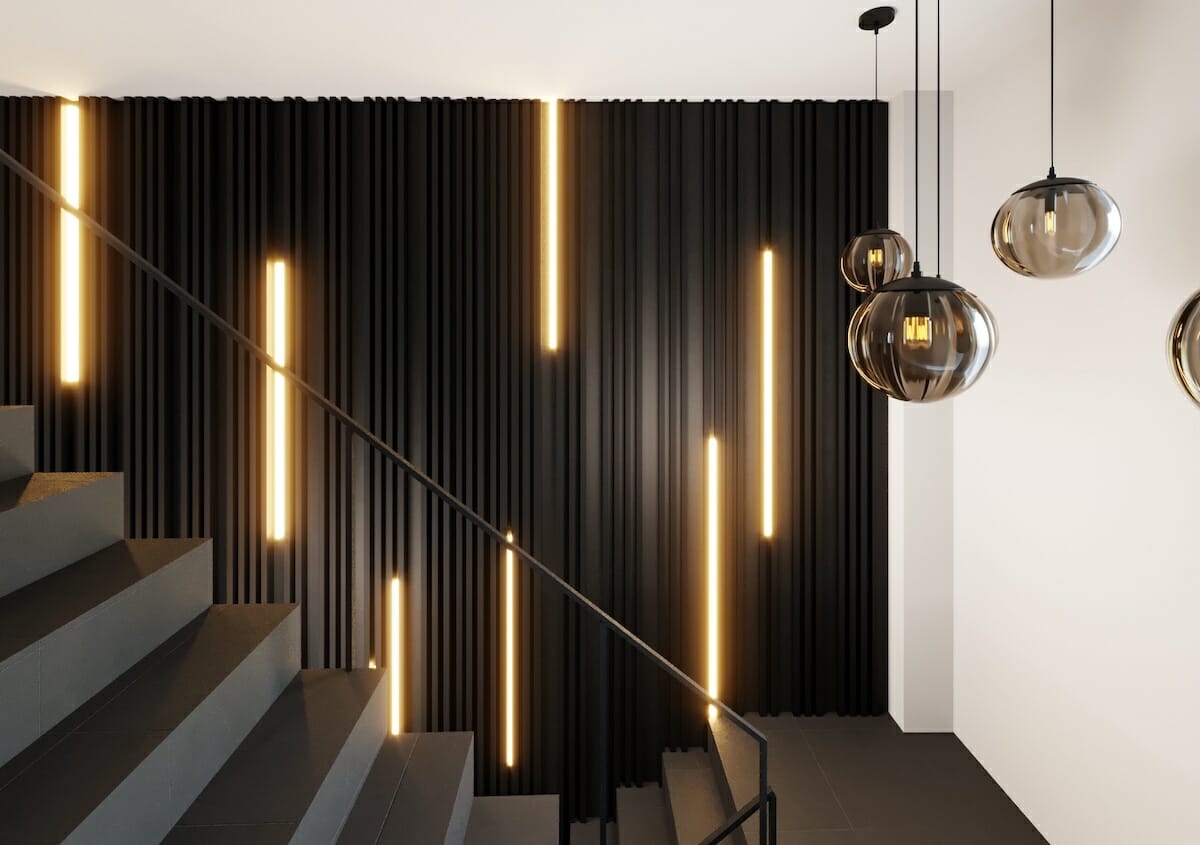
Without accent lighting, a house’s interior lighting design can be a bit bland. Accent lights help in accentuating key features of the space. For example, installing a sconce above or below artwork can make them look even more stunning. Moreover, accent lights help to give oomph to a room.
Natural Light in Interior Design
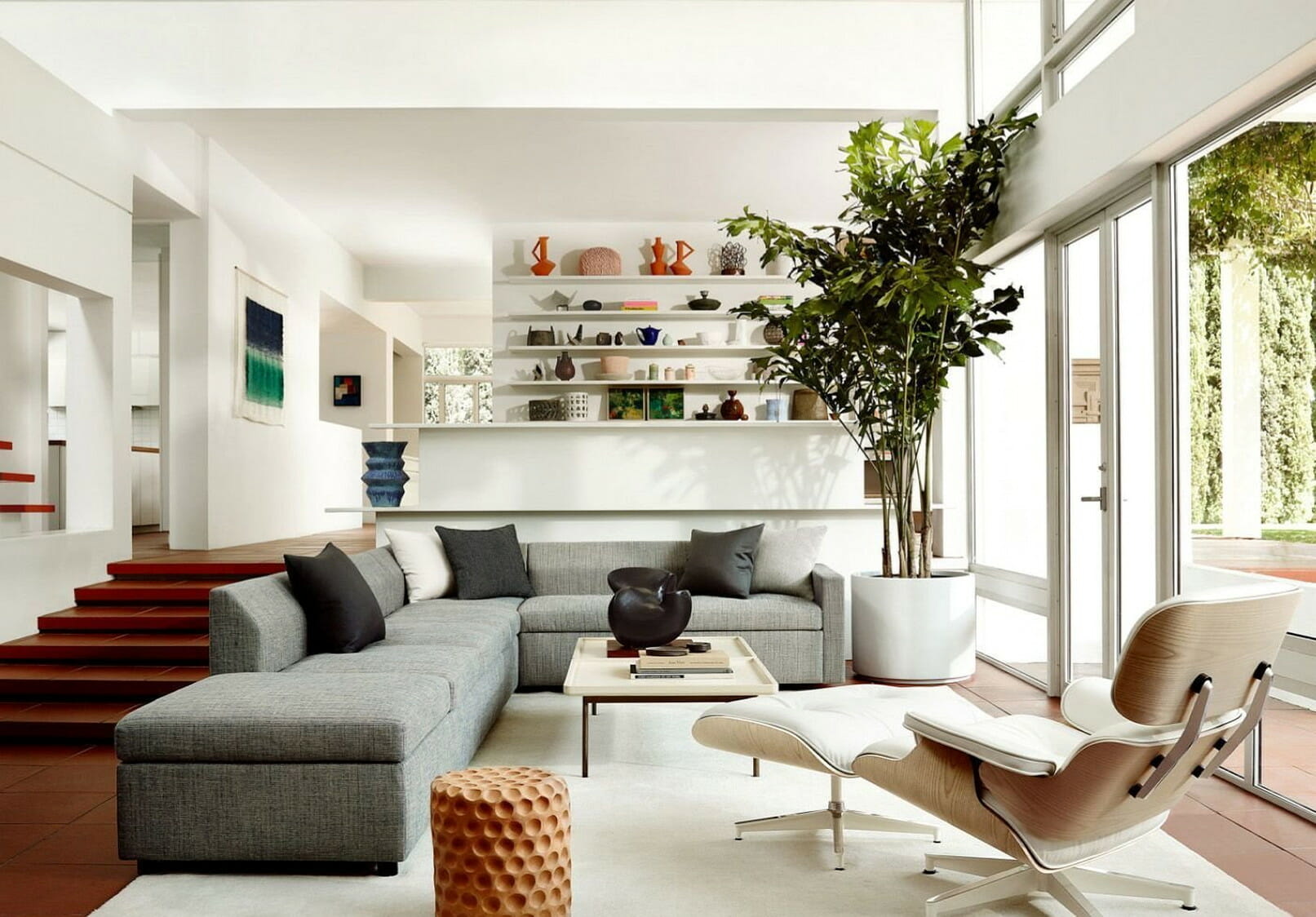
Natural light in interior design plays an irreplaceable role. Optimizing natural light is not only aesthetically pleasing but also energy efficient. A naturally illuminated space adds warmth and depth to the room. Moreover, sunlight has various health benefits in small measures. So, if you have ample natural light, make sure you maximize it in your home interior.
Best Home Interior Lighting for Each Room
Kitchen Lighting Ideas
1. Light Up the Island
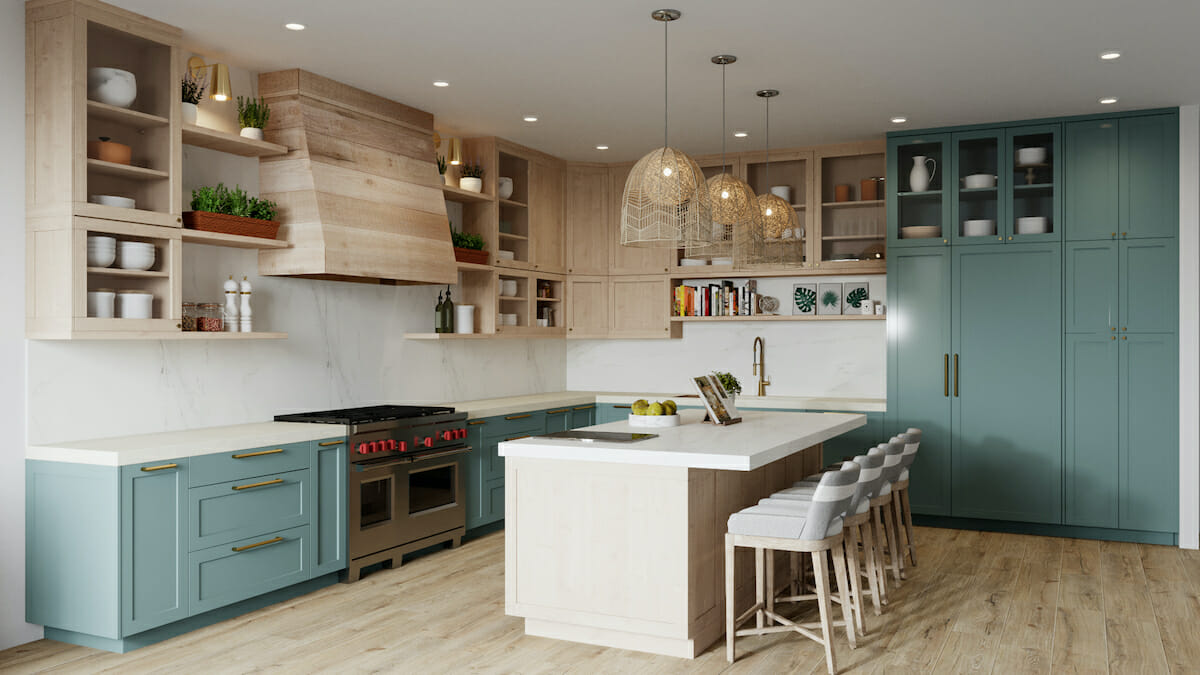
Just like your home interior lighting plan, the kitchen needs special treatment too. A brightly lit kitchen looks chic and clean. To achieve a pristine look, include all three types of lighting in your interior design. And remember to make the most of your kitchen island with statement pendants. Not only is this beautifully bold, but also practical.
2. Maximize Sunlight
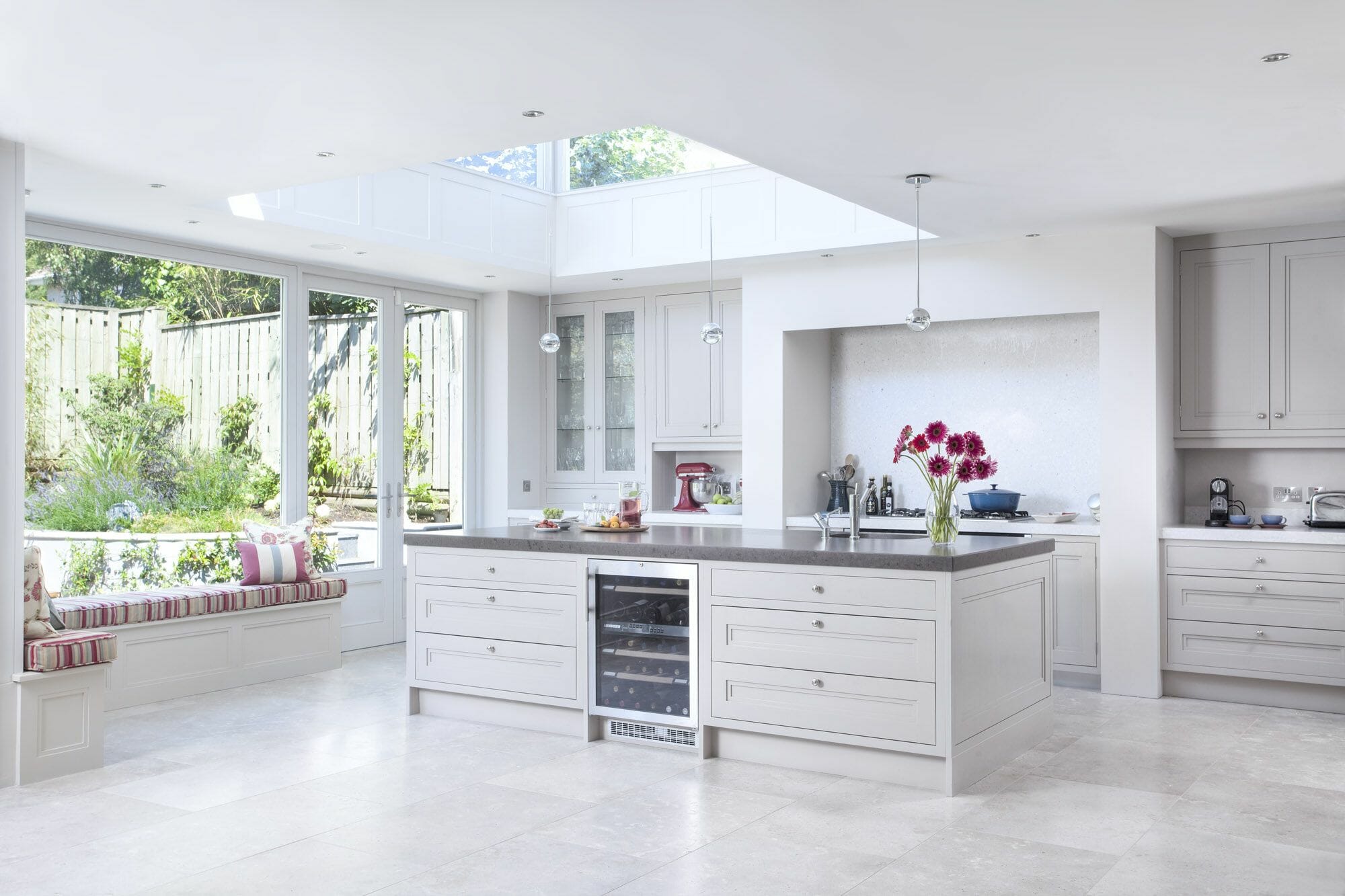
Natural light invigorates an interior like no other. The soft yet warming glow can make a space look fresh and breezy. And, most importantly, natural sunlight creates a healthy environment. To make the most of this natural resource, incorporate large-pane windows, skylights, and reflective surfaces to double the gleam.
3. Incorporate Cove or Under-Cabinet Lighting
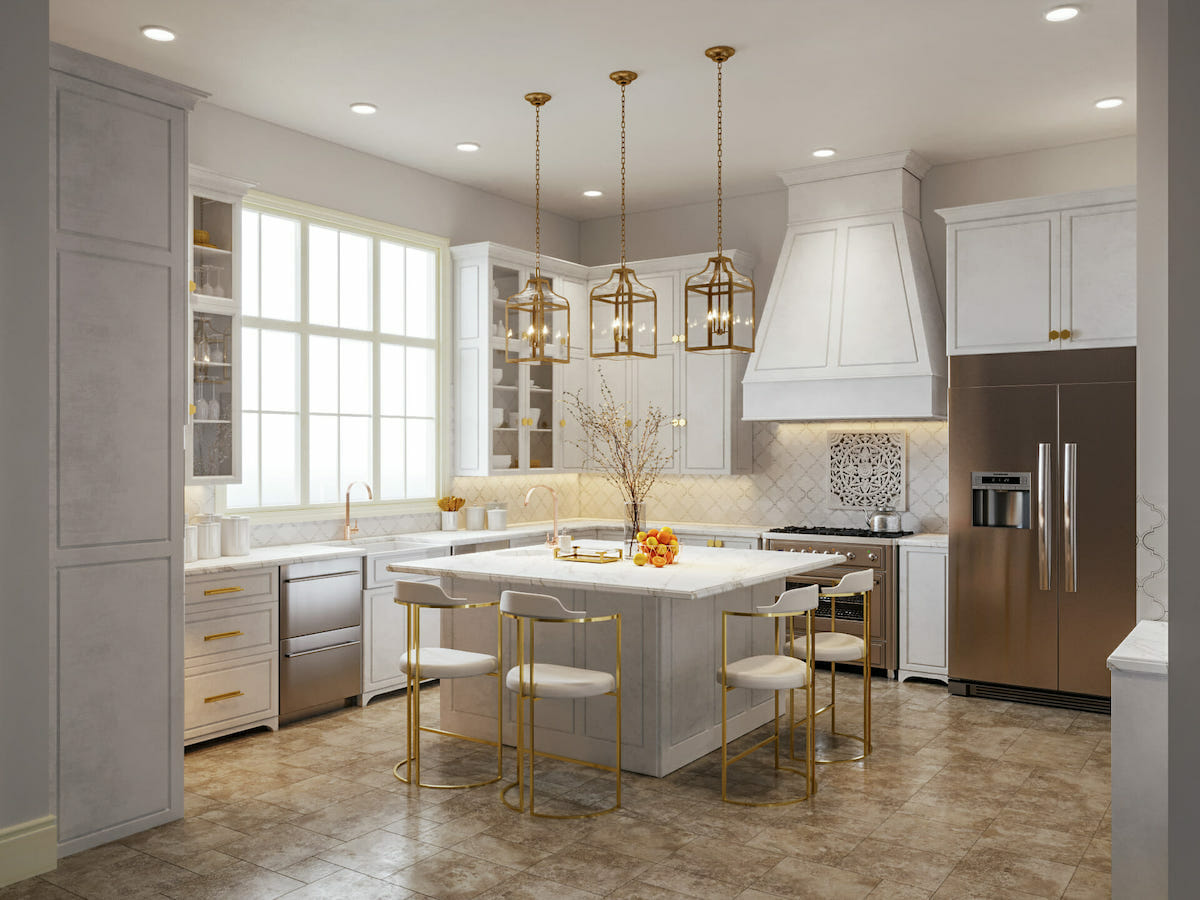
Corners and nooks, especially under kitchen cabinetry, are often dark. But you can avoid any dead crannies with cove or under cabinet lighting. These are more than practical, they also add another layer of light and depth. In addition, you can use colorful LEDs for a different mood in the kitchen.
Bedroom Lighting Ideas
1. Turn to Warm Light
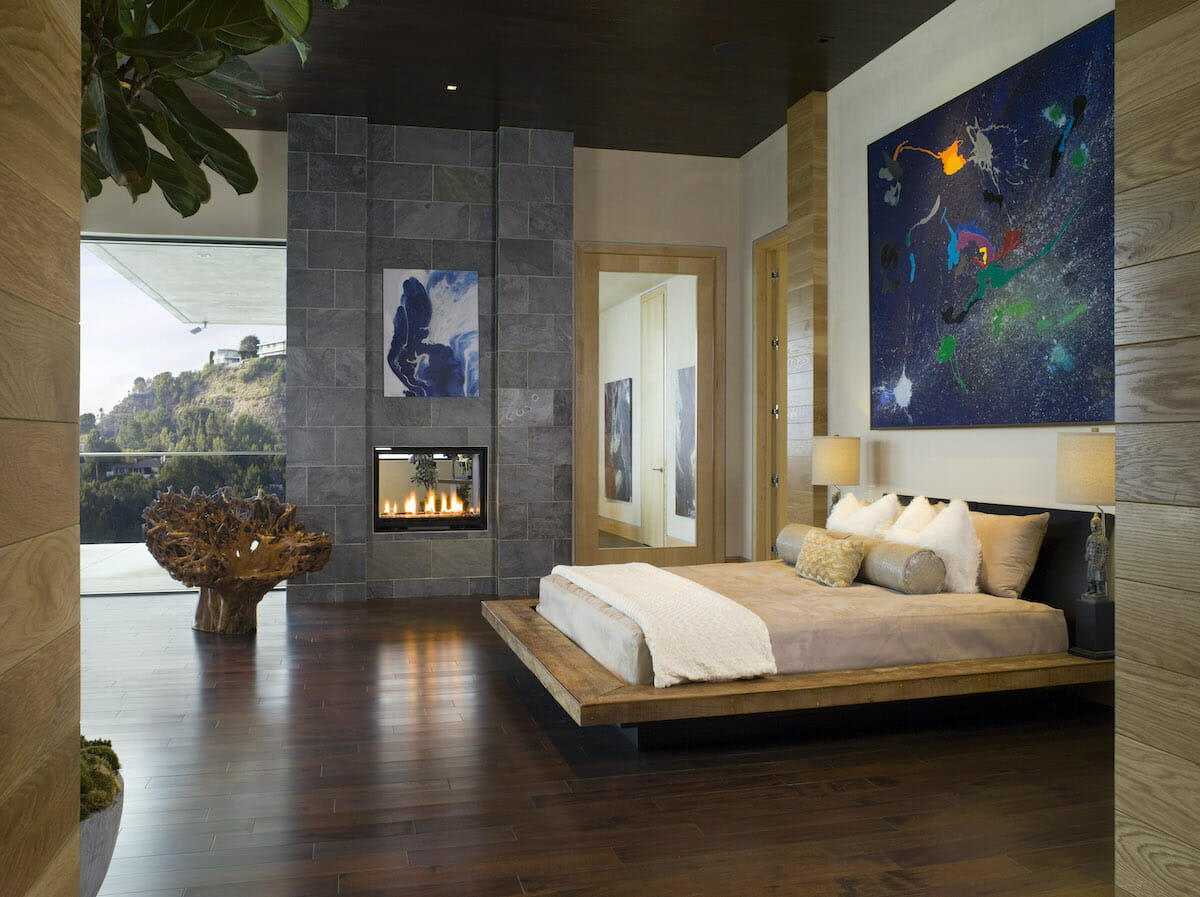
Bedroom lighting should be inherently soft and ambient. Experiment with color temperature to create an interior perfect for relaxation. This could mean a mix of dimmed ambient lights and brighter accent and task lighting. For instance, warm yellow light induces an intimate setting that is perfect for dozing off comfortably.
2. Remember Task Lights
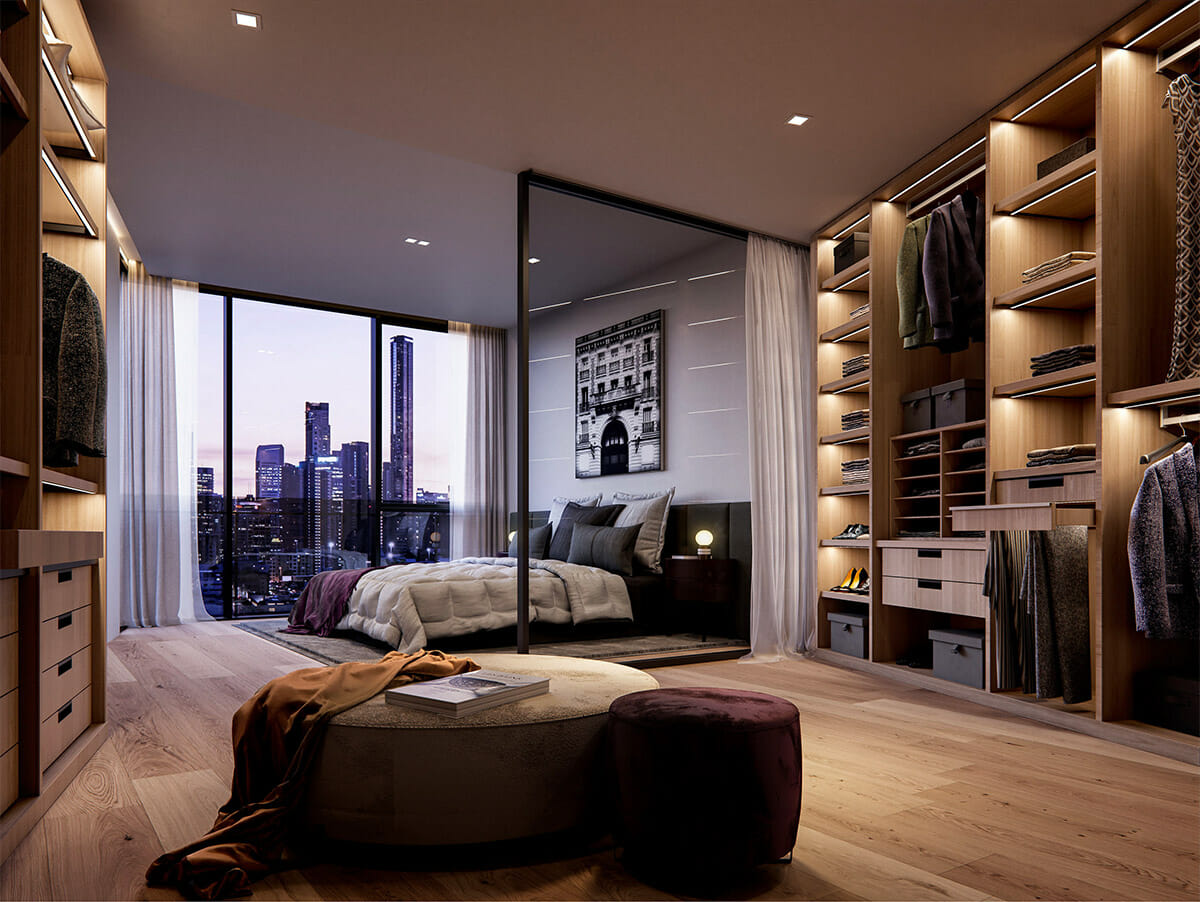
For most people, the bedroom is a multi-functional space where they sleep, read, get dressed and, sometimes, even work. Therefore, having efficient task lighting is important. Inside closet lighting, for instance, will provide essential light while getting ready.
3. Create Interesting Features
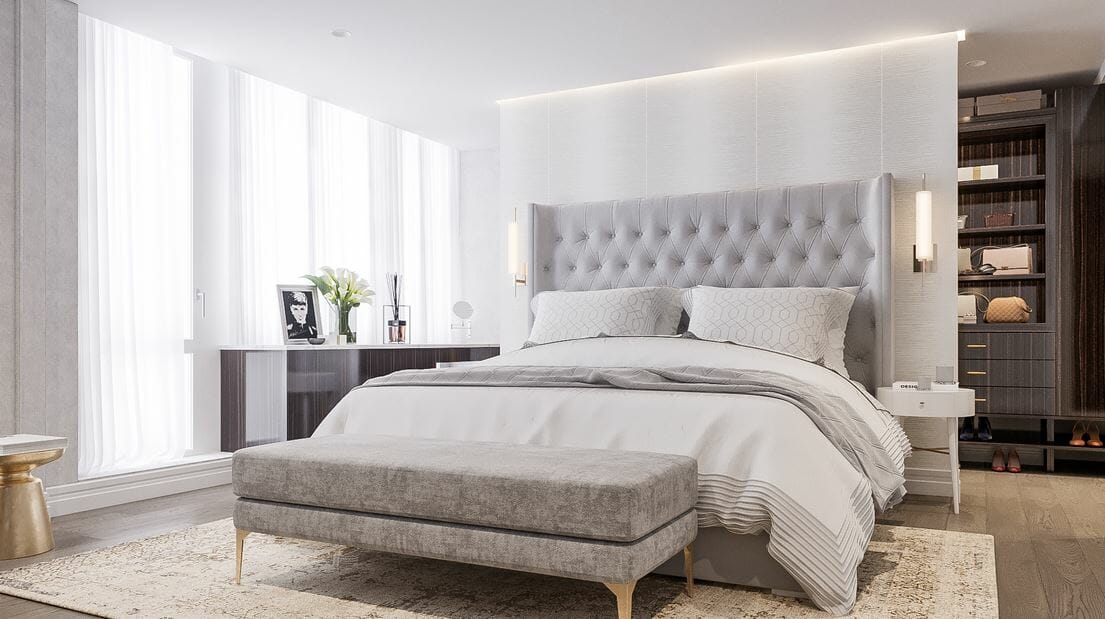
Modern interior lighting can be used in multiple ways to add visual interest. For example, under-bed lighting looks very luxurious and will set up a cozy vibe. Also, you can ditch traditional bedside lamps and opt for hanging pendants or wall sconces to add personality to the room.
Living Room Lighting
1. Amplify Aesthetics with Accent Light
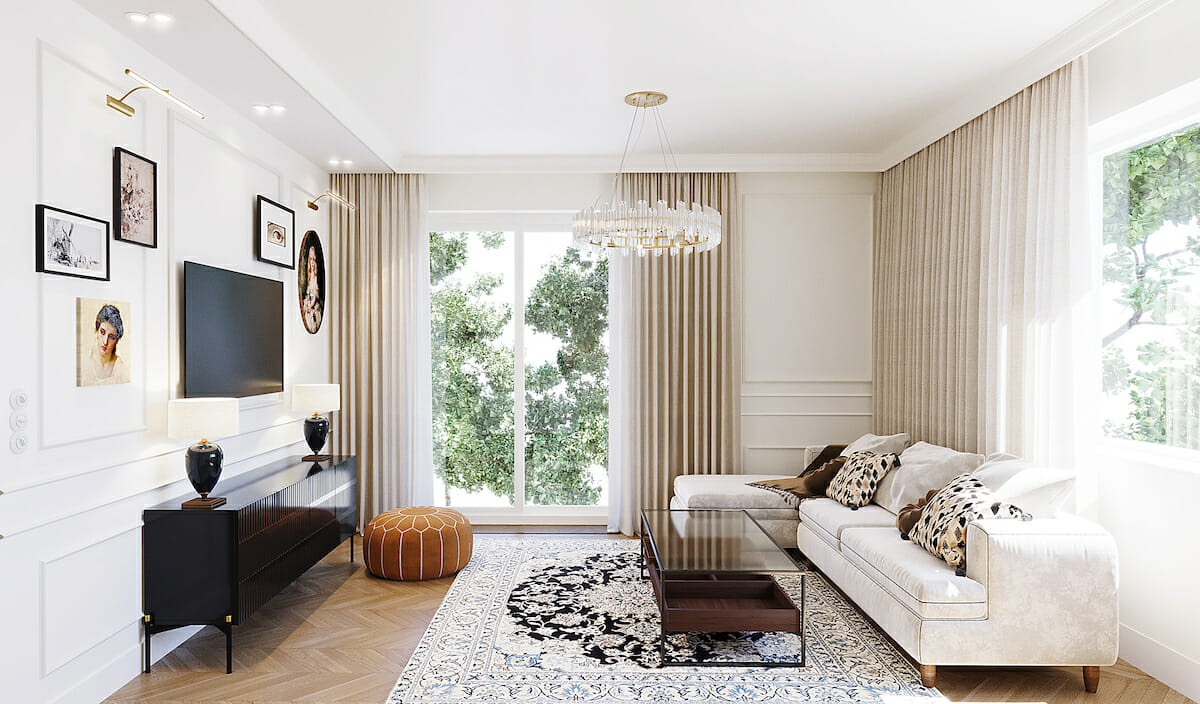
Think about all the functions you carry out in the living room when planning your lighting design. Not only should this design be functional but it also needs an element of fun. While the LED strips in ceiling recesses look sleek, there are many other ways to illuminate the space. Most importantly, take inspiration from the room’s features to help formulate a lighting plan.
2. Add Spotlights
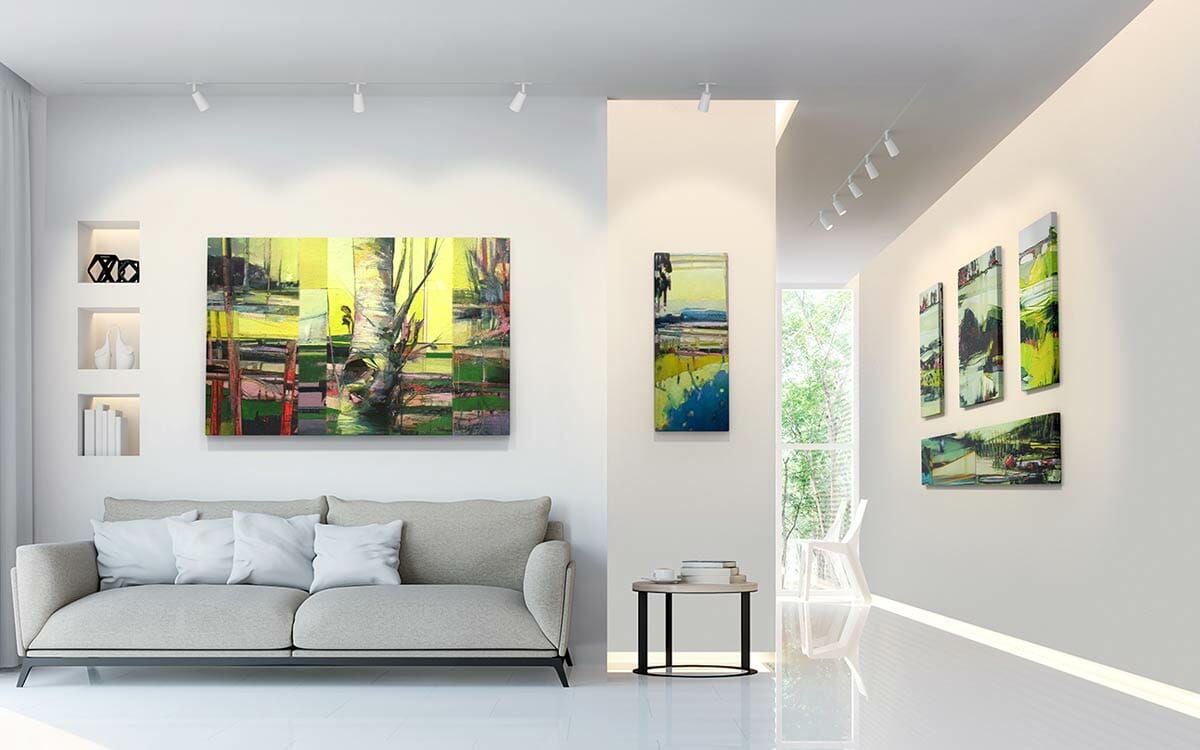
Spotlights work great for emphasizing particular parts of the living room. With this in mind, you can highlight artworks, accentuate a statement wall using spotlights or track lights. In this way, you can make your favorite design elements pop.
3. Consider Dimmers
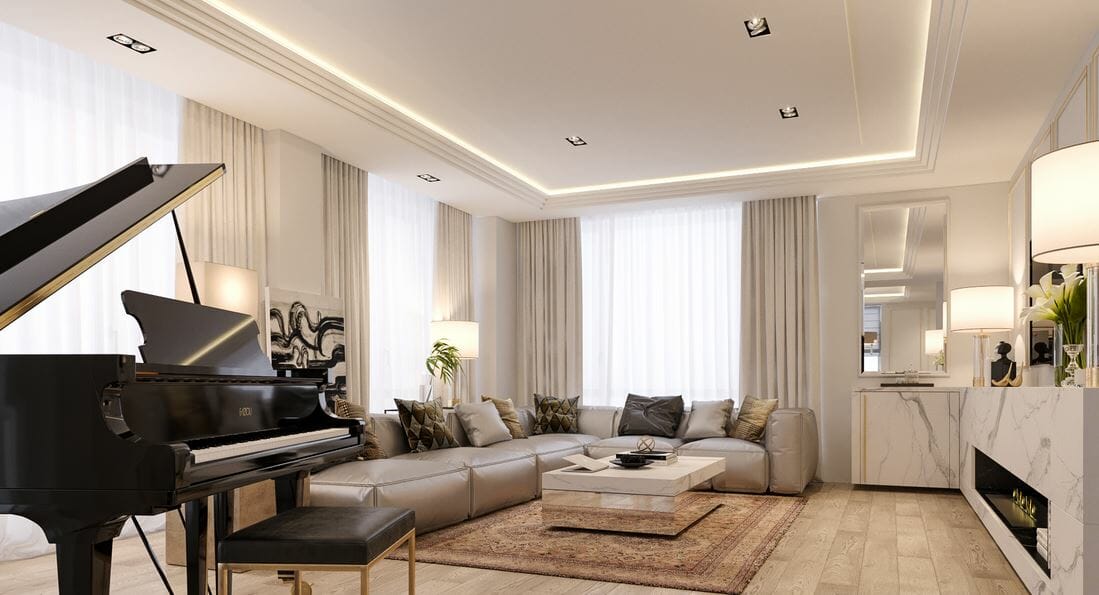
While a brightly illuminated living room looks opulent, often a softly lit interior design can be a total hit. Install dimmers on your ambient lighting for a moody, romantic ambiance.
Bathroom Lighting Ideas
1. Layer Bathrooms Lights
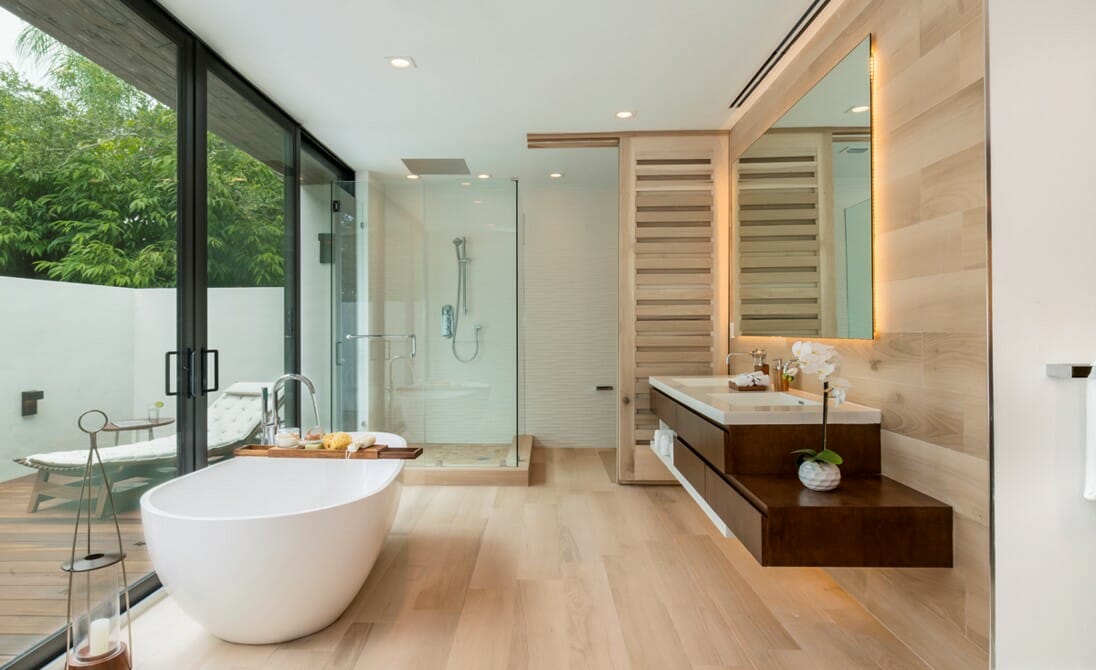
Seldom done correctly, layered bathroom light is an important part of a house’s general interior lighting. A good mix of ambient ceiling lights, task lights above the sink, and decorative accent lights will result in a beautiful boutique-like bathroom.
2. Aesthetic Accent Lights
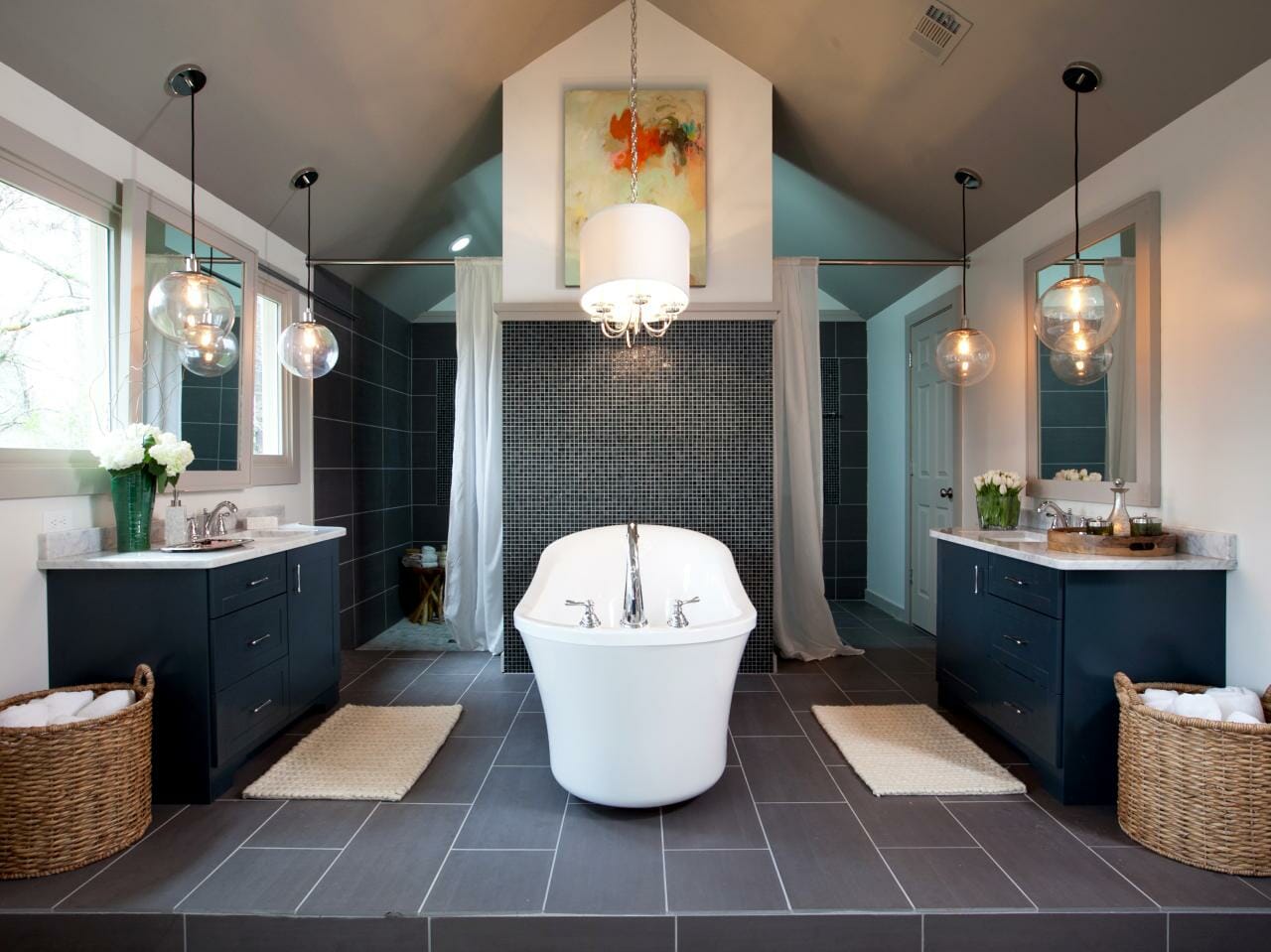
Accent lights for the bathroom can be super fun. Experiment in line with the features of your room. For instance, you can add under cabinet lighting or add track lighting to nooks. In addition, a statement light above a bathtub can also jazz up space.
3. Introduce Night Lights
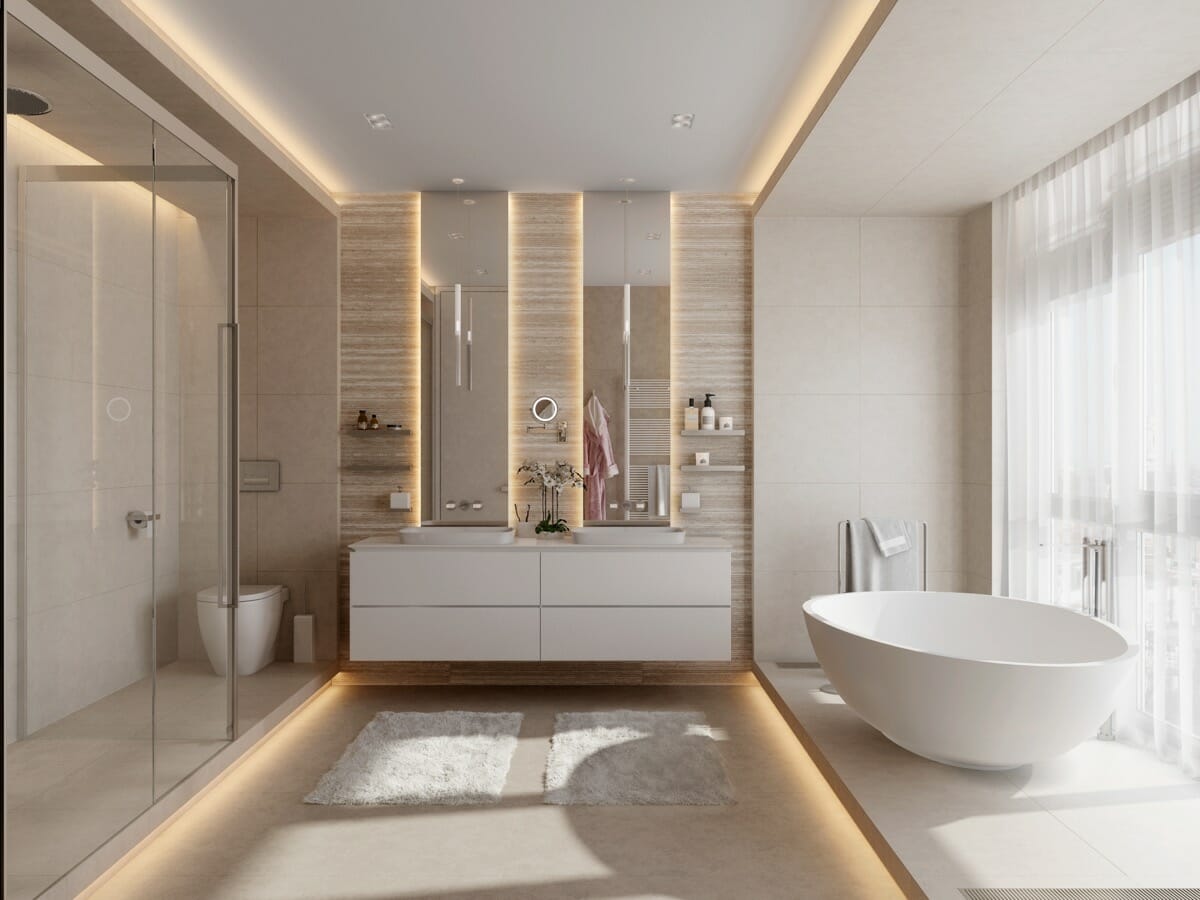
Incorporate a ground-level light to create a soft pool of light on the floor – it’s a perfect way to illuminate the room at night. This soft lighting can be a great substitute for any of the brighter main lights.
Get a Home Lighting Interior Design Makeover!
Feeling inspired to amp up your lighting interior design, but not sure where to begin? Then, schedule your Free Interior Design Consultation to get started with the finest interior designers!

[images: 1, 2, 3, 4, 5, 6, 7, 8, 9, 10, 11, 12, 13, 14, 15, 16, 17, 18, 19, 20, 21, 20, 21, 22]







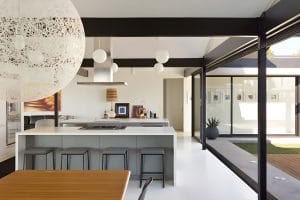
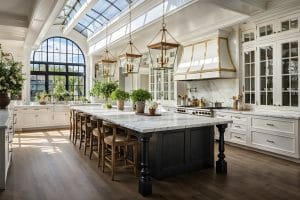

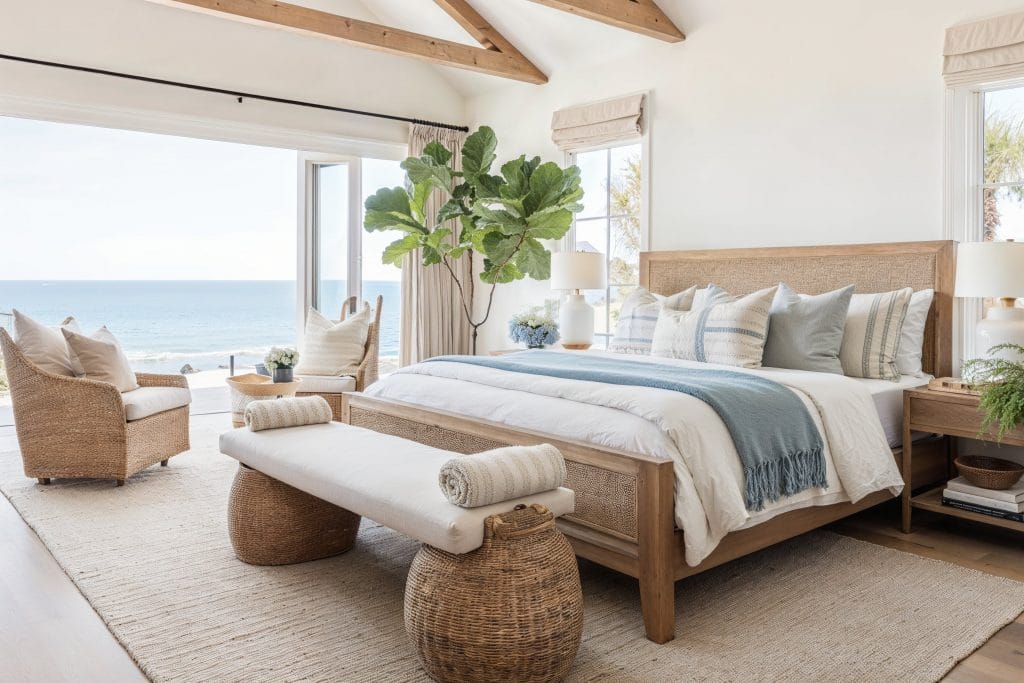
Comments